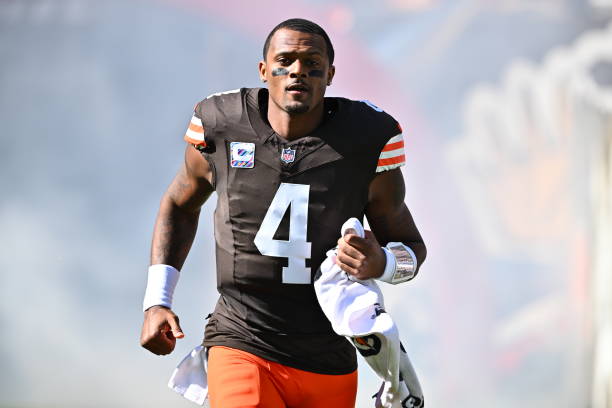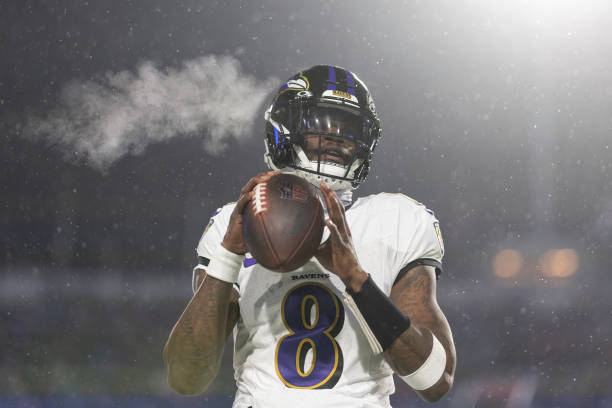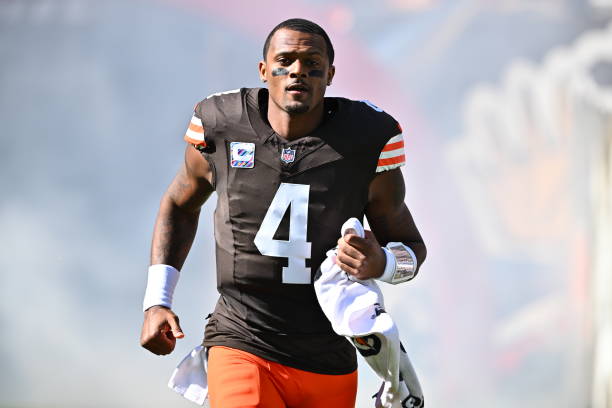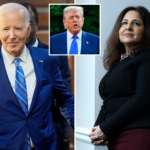An independent arbitrator has determined that the NFL did indeed encourage teams to engage in “collusion” to reduce salary guarantees in players’ contracts.
The arbitrator wrote that there is “little question” that in 2022, the NFL’s Management Council, with both the knowledge and approval of Roger Goodell, “encouraged” teams to act in “collusion” to restrict the amount of guaranteed money awarded to players in their contracts.
The finding of the arbitrator, Christopher Droney, did not, however, find evidence that teams had engaged in collusion.
“There is little question that the NFL Management Council, with the blessing of the Commissioner, encouraged the 32 NFL Clubs to reduce guarantees in veterans’ contracts at the March 2022 annual owners’ meeting,” the ruling reads, via sports reporter Pablo Torre.
“However, the evidence did not establish a clear preponderance that the Clubs agreed to do that or participated in such a scheme. There are many Clubs whose only connection to his proceeding is the attendance at the Owners’ meeting, and the expert evidence of aggregate and average changes in various measure of spending, guaranteed and otherwise, is not sufficient, even when considered with the other evidence presented, for the NFLPA to meet its standard of proof.”
The arbitrator’s finding stems from a 2022 lawsuit filed against the league by the NFL Players’ Association (NFLPA) in which it was alleged that NFL teams violated the collective bargaining agreement by colluding to prevent each other from offering players fully guaranteed contracts, in the aftermath of the whopping $230 million fully guaranteed contract the Browns had give Deshaun Watson in March of that year.

Quarterback Deshaun Watson #4 of the Cleveland Browns reacts during player introductions prior to the game against the Cincinnati Bengals at Cleveland Browns Stadium on October 20, 2024, in Cleveland, Ohio. (Jason Miller/Getty Images)
Unlike Major League Baseball (MLB), the NFL has not historically used fully guaranteed contracts. For that reason, it would be reasonable for teams to conclude on their own that the league would frown upon making any more deals like the one the Browns gave Watson. However, for the league to actually encourage teams to collude would constitute a clear violation of the collective bargaining agreement.
One source told Torre that the revelation of the league’s actions is a “holy grail” for the NFLPA.
“It’s almost like the holy grail for the union. Here’s 61 pages of gory details about how the league really works, thanks to an independent judicial arbitrator. You should be screaming about this from the high heavens.”
The NFLPA’s suit called for voiding the contracts of Ravens QB Lamar Jackson, then-Broncos QB Russell Wilson, and Cardinals QB Kyler Murray, all of whom were signed after Watson’s deal.

Lamar Jackson #8 of the Baltimore Ravens looks to pass prior to an NFL Football game against the Buffalo Bills at Highmark Stadium on January 19, 2025, in Orchard Park, New York. (Michael Owens/Getty Images)
“The NFLPA bases its claim on the fact that no other quarterback or high-profile player signed a fully guaranteed contract after Browns’ quarterback Deshaun Watson signed his contract last March,” read a 2022 memo from Jeff Pash, currently the league’s EVP, general counsel. “The NFLPA argues that ‘[t]he expectation was that fully-guaranteed contracts would now become the competition driven norm for the players in the League, including quarterbacks, negotiating new contracts.’”
Pash added, “We are aware of no evidence supporting these collusion claims, which we will vigorously oppose.”
Droney’s findings have remained a secret since January of this year, with both the NFL and NFLPA declining to make them public.
While he found “little question” that the league had encouraged collusion, Droney neglected to void any player contracts.
“While the NFL Management Council encouraged the 32 members Clubs of the NFL to reduce guarantees in future contracts with prayers at the March 2022 annual meeting of the Club owners,” Droney wrote, “the Clubs did not join in such a collusive agreement and did not act in accordance with one as to the three quarterbacks named in the initial arbitration demand or to other veteran players.
“Accordingly, I dismiss the arbitration demands of the NFLPA in its entirety.”



